Suibara Magistrate's Office
In 1746, most of the areas in present Agano City switched from the Shibata Domain to the shogunate lands directly controlled by the regime. The magistrate's offices were established, the rice tax collected and the civil administration executed. The Suibara Magistrate's Office was restored based on the material remaining. Those days are faithfully reproduced, making you feel as if you were transported through time.
■Phone:0250-63-1722
Open:9:30a.m. – 4:00p.m. (April – November)
10:00a.m. – 4:00p.m. (December – March)
Closed: Mondays (Open if falls on a national holiday and closed the next Tuesday)
Admission:Adults \300
Elementary to high school students \200
Group discounts
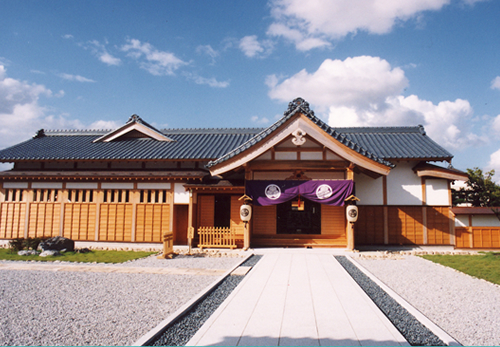
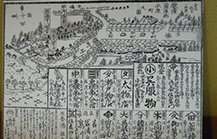
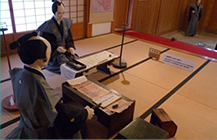
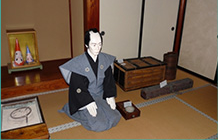
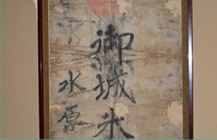
A government business room where work such as tax collection and civil administration took place and a room where criminals were investigated were recreated in August 1995 based on the floor plan from those days.
The magistrate's office's main work was tax collection and civil administration, but for Suibara, the purposes were to secure the rice tax deriving from the abundant production in this area, develop the Fukushima Lagoon and supervise the Shibata and Murakami domains.
Yasuda roof tiles and the Tile Road
Yasuda roof tiles date back to the Edo period. A specialty of Agano City, they offer high quality, excellent insulation and cold resistance given the severe climate in snow country.
Yasuda tiles decorate the roofs of historic buildings such as Yahiko Shrine's imperial envoy house and picture table house, the old prefectural assembly hall, the old custom house, the Northern Cultural Museum and, in recent years, the roof of the prefectural governor's official residence.
Using the production technology of Yasuda tiles, objects and artistic works are created today. Yasuda Tile Road is a sightseeing spot where you can actually see those works and a tile factory. The Yasuda Tile Road Festival is held annually in June.
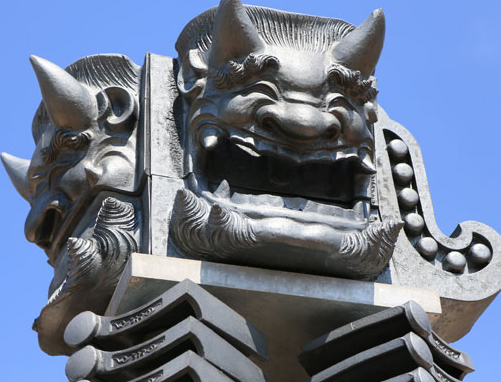
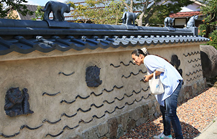
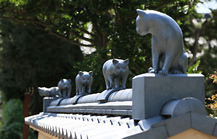
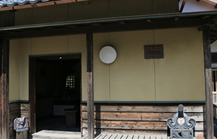
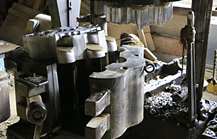
Yasuda roof tiles date back to the Edo period. They offer high quality, excellent insulation and cold resistance given the severe climate in snow country.
Anchi pottery is sturdy and easy to use. The Hatano kiln possessed by three sisters has kept its tradition for 30 years. Even today all the processes are performed manually, starting from scratch by making the clay.
Yoshida Togo Memorial Museum
A museum established to commemorate Togo Yoshida, a pioneer in Japan's historical geography, who wrote Great Japan Geographical Dictionary. This museum, built on his birthplace, is a small local museum in a town area. It is an open museum for local residents to use for studying and learning.
■Phone:0250-68-1200
Open:9:30 – 17:00 (Last entry at 16:30)
Closed:Mondays (When falls on a national holiday, the next day is closed.)
The day after a national holiday (If falls on Saturday or Sunday, it's open.)
Dec. 28 – Jan. 4 (When falls on a national holiday, the next day is closed.)
Admission:Adults \300 (\200 for groups over 20 people)
Elementary school and junior high students \150 (\100 for groups over 20 people)
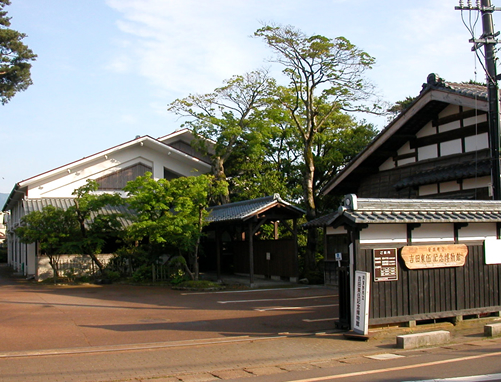
Great Firework Display on Lake Hyoko
A gorgeous firework display is the grand finale of the Suibara Festival.
Hundreds of fireworks decorating the night sky are the highlight of this festiva l.
Place:Lake Hyoko
Car park:Municipal parking lot in front of Hakucho Hall
Municipal parking lot south of Lake Hyoko
Display hours:7:30 p.m. – 8:30 p.m.
The city website announces at 3:00 p.m. on the fireworks day if they will be shot off or not.

Triangle tumbling doll
The waggish expression on the face with a side glance and unyielding mouth tightly closed in one line strongly moves us and gives us limitless strength to overcome difficulties and stand up. This handmade item can be used for celebration as a good omen.
■Phone:0250-62-1043 Imai at Yamaguchi Dolls
